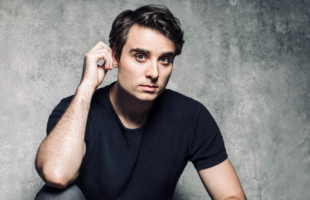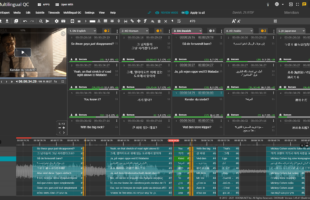Q: Tell us about your role in the Hong Kong office?
A: National Geographic Channel (NGC) wanted to make changes in its programming and overall business and channel strategies. As part of that, they needed a head of production to increase local production across all our 14 territories. I’m kind of an ambassador for local production on NGC across 14 territories.
Q: NGC as a whole seems to be moving away from one-offs and going into series, particularly those that are returnable, and series that are personalitydriven. Is that the same for Asian commissions?
A: Yes, definitely. I think everybody wants returnable series because there’s a lot of value in them. We will do certain specials or one-offs if it’s a very strong story, very topical or a major anniversary but I think what we’re saying is we’ve got to prioritise developing returnable series because that’s how production can make a more significant contribution to channel performance. If you have a hit series, then obviously people keep coming back and over the course of one month, two months; you get a significant amount in your ratings.
Q: Some series like Strippers: Cars for Cash, Doomsday Preppers and Family Guns seem to be “lighter”. Are you concerned about that?
A: Not concerned about that and I do think it’s becoming lighter, although I don’t know if ‘lighter’ is accurate. It’s lighter compared to the traditional perception of what National Geographic is, but everything has to change and expand and keep up with programming trends. I don’t think it is true to say that if we become more fun, it doesn’t stay true to what National Geographic is about. It’s still about exploration in many sense of the word. It’s just that not every show is going to be a Great Migrations-type of special. We can’t fill the schedule with the Titanic anniversary all the time.
Q: How has the Asian output changed since you took over?
A: There’s a significant increase in what we’re trying to do. In factual alone, we’re probably looking in the region of 100 hours a year. That’s quite a big scale but that’s because we’re looking to identify and develop series, so you’re going to get multiple episodes. If you look at what we’ve been doing the last year, for instance, we really wanted to grow our success on all levels; on a local level, regional level and a global level. In August, I got a rating report that said we beat our number one competitor in Malaysia, Philippines, Singapore, Hong Kong and Taiwan, which made us the number one factual channel in August. So obviously a lot of these new international programmes are working. A lot of our regional programming and initiatives are starting to work and on a local level, what we do in local productions is also playing a part. So if you look at it, it’s sort of three-pronged.
Q: Are you bringing Asian commissions to National Geographic channels globally?
A: It is not a main goal of mine but I would say that’s a bonus. They tend to be more specials (than series) though. Sometimes producers come in with an idea that’s from our region but international at the same time. They can come to me via Asia or they can come to International. Even though I said we don’t do global stuff, one of the main series I’ve been working on since I joined is Access 360 World Heritage, a series about world heritage sites. It’s a partnership with UNESCO and Panasonic and that’s a global series. So it’s been driven out of Asia and will air in every NGC territory around the world.
Q: Where do you think the trend is heading when it comes to factual entertainment?
A: People have high expectations for us to get into new subcultures and hidden worlds. If you were to do a series, you kind of need to find that subculture or hidden world with which you can get returning episodes, as opposed to an anthology where you have, say, an umbrella theme like Inside and every episode is slightly different. I think that trend sort of blends into this series approach which is largely character-driven. So like Cesar Milan in Dog Whisperer; every episode you get a different situation and a different dog. Doomsday Preppers as well; you get different characters, different situations. All of the major factual returnable series have that very strong characterled world whether they work in a business or a subculture, and it’s done in a much more contemporary factual entertainment way. That’s certainly what we’re looking at doing in Asia.
For the full interview with Mark Francis, go to www.onscreenasia.com.








